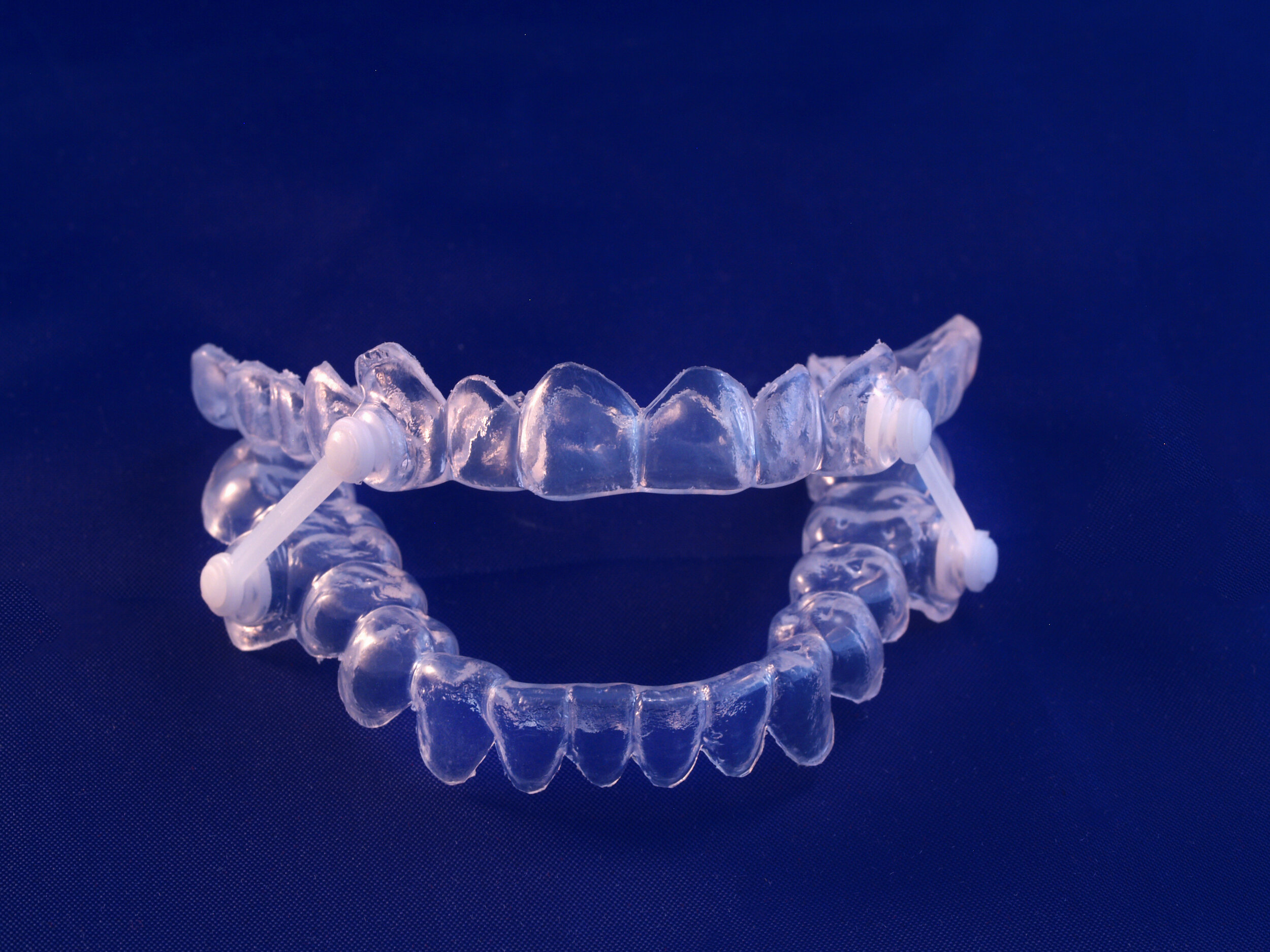Dental Appliances
-
A denture is a set of false teeth that is taken in and out of the mouth. It is a way to replace missing teeth. It is an oral appliance that you wear during the day and take off during the night.
-
A denture is recommended if you do not have teeth and desire to replace them. If a patient has no teeth or is missing some teeth, a denture may be advised. It is not an ideal treatment. If the patient is not a good candidate for replacing teeth with implants, then a complete denture or a partial denture is recommended to replace the missing teeth.
-
There are complete dentures for patients that are missing all of their teeth. For patients who are missing some of their teeth, a partial denture is fabricated. A partial denture can be made of different materials including a metal framework with acrylic teeth.
-
Dentures can last over 10 years depending on care and maintenance. Sometimes, the denture is fine but the patient’s bone structure and gums may change over time. This may necessitate a new pair of dentures, as the old ones will not fit anymore. This also plays a factor in how long a denture can be utilized.
-
Dentures should be removed at night and gently cleansed with light brushing. It can be washed with hand soap and water. Brushing the denture with toothpaste is not recommended. If your denture does not have any metal on it, you can buy a tablet from a drug store often marketed as a denture cleaner.
-
Dentures are often uncomfortable because our oral cavities are always changing, but a denture is a fixed unit that does not change. Therefore, adjustments are necessary. After receiving a new pair of dentures, patients must come for at least 2-3 adjustments. Each adjustment is made only if the patient has been actively wearing the dentures. It can be frustrating, but denture adjustments and fitting is a long process.
Dentures
-
A night guard is an oral appliance that you wear on your teeth before you sleep. It is usually clear and firm, placed either on the lower teeth or upper teeth.
-
A night guard is recommended for patients who are experiencing symptoms of TMD (temporomandibular disorder). Symptoms include headaches, jaw pain, limited mouth opening, and soreness. Unfortunately, many people grind their teeth at night or clench their jaws during their sleep. This is one of the causes of migraines, which patients will experience once they wake up and work throughout their day. Often, many people who are stressed clench their jaws unconsciously throughout the night. If you experience those symptoms, or if the dentist sees generalized wear on your teeth due to grinding, a night guard is recommended.
-
A night guard can range from $350-600, depending on the type of night guard that is recommended.
-
A night guard can last over 10 years with proper care. Patients with severe grinding may grind down their nightguard, and would need a new one sooner. Night guards can be adjusted to increase their effectiveness. Bring your night guard to your dentist for a proper adjustment.
Night Guard
-
A sleep apnea mouthpiece looks like a nightguard. It is a clear mouthpiece that you wear at night. Generally, there is an upper and lower mouthpiece connected together. The goal of the mouthpiece is to move the lower jaw forward.
-
The mouthpiece moves the lower jaw forward, opening up the airway space so that breathing during the night is not impeded. This allows for better rest and deeper sleep. Treating sleep apnea is important for overall health. It is important to know that this mouthpiece is only beneficial for those who have obstructive sleep apnea, which is more common than central sleep apnea. Consult your physician to understand your specific sleep apnea condition.
-
A sleep apnea mouthpiece can be uncomfortable, especially if this is your first time wearing a mouthpiece to sleep. Just like any new device, it will take time to adjust. It is important to be patient with your body.



